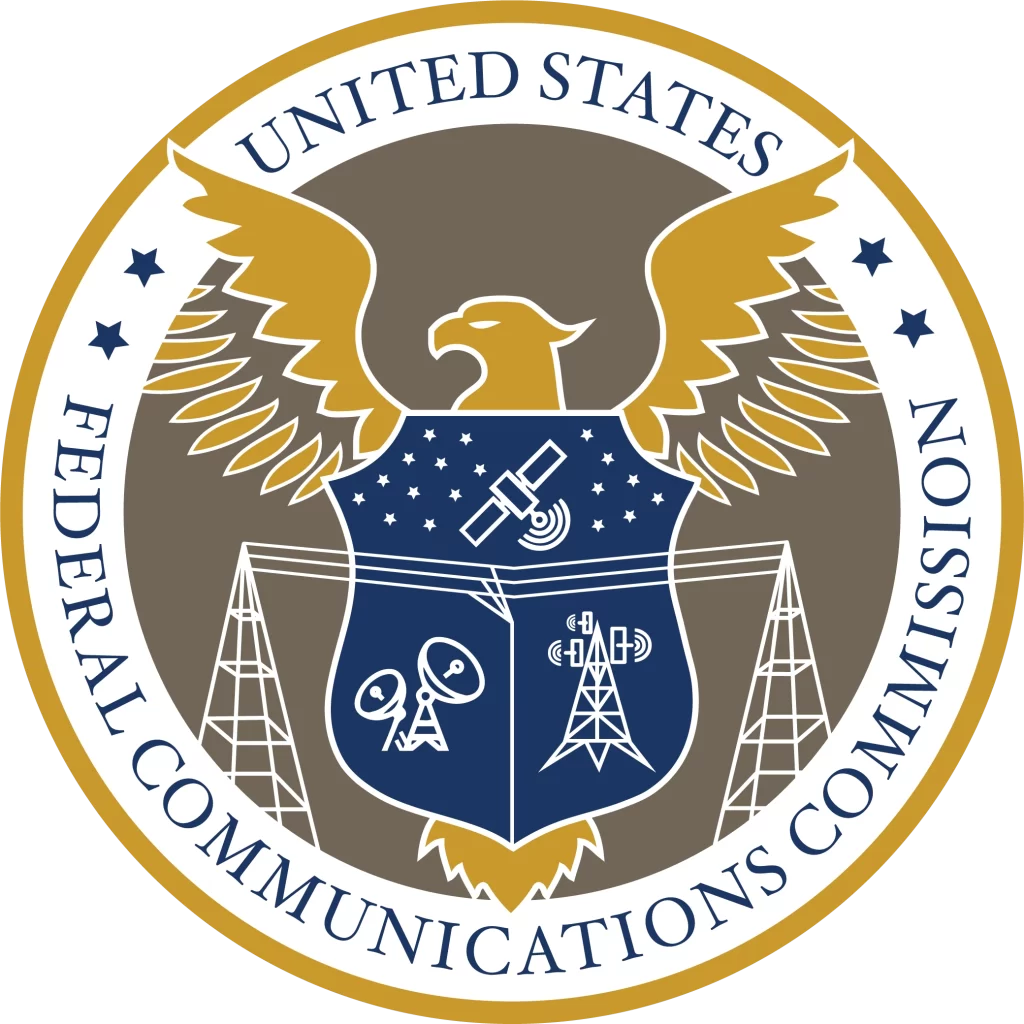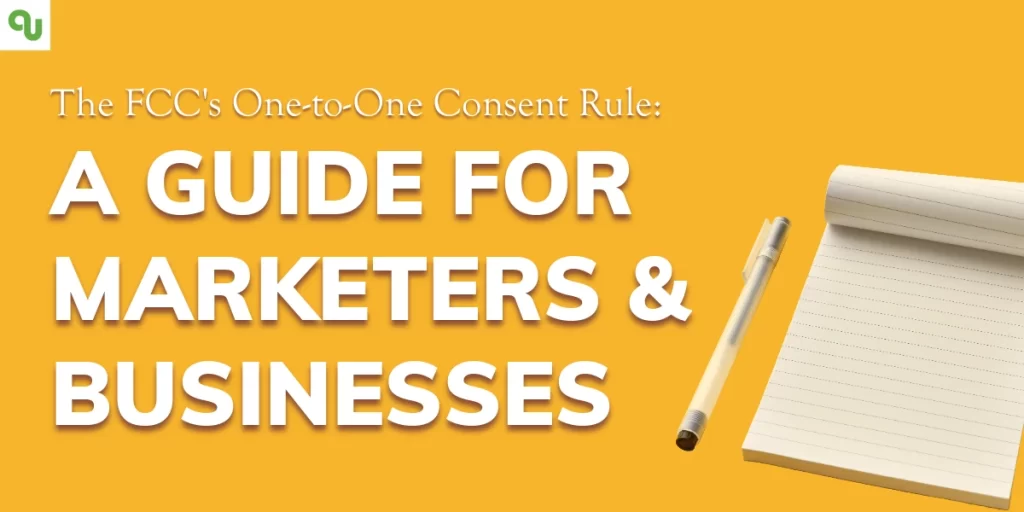Do you rely on online forms or automated texts to reach potential customers? If so, you’re tapping into a powerful marketing tool! At Art Unlimited, we know how crucial it is to collect and use consumer information effectively. However, you should be aware that the Federal Communications Commission (FCC) recently adopted an additional restriction on the Telephone Consumer Protection Act (TCPA), further limiting the extent to which a consumer may be contacted.
This newly-created regulation, known as the One-To-One Consent Rule, is scheduled to take effect on January 27, 2025. Organizations with websites, including roofing and construction contractors, must know how this rule applies or risk severe legal consequences. Unfortunately, ignorance of TCPA regulations (including amendments) does not offer legal protection (or a viable defense against a lawsuit) for organizations violating its provisions.
To learn more about how the TCPA, including the One-To-One Consent Rule, specifically applies to your organization, consult your legal counsel.
Click here for a more detailed analysis of TCPA, including the One-To-One Consent Rule.

On January 24, 2025, the FCC’s One-To-One Consent Rule was vacated before it was scheduled to take effect on January 27, 2025. Accordingly, this requirement is now void and will not take effect at this time. Consult with your legal counsel for any future developments.
Purpose Of The One-To-One Consent Rule
Historically, consumers have viewed robocalls and telemarketing communications negatively. Indeed, most consumers despise autodial marketing messaging and unwanted telephone calls from spammy or aggressive sales tactics. In response to ongoing consumer concerns, the TCPA became federal law in 1991. This act required organizations to maintain organization-specific “do-not-call” lists. Since its passage, the TCPA has been amended multiple times to reflect changes in technology and marketing.
In 2024, the FCC further updated the TCPA to reflect increasing consumer concerns about unwanted marketing messages in online and mobile device formats. The goal is to protect consumers from the increasing use of digital marketing that bombards them with little or no means to opt-out. With this new ruling, an individual consumer must be fully informed and expressly consent (opt-in) to being contacted. Additionally, marketing efforts must be transparent so consumers know who is contacting them.
To summarize, the FCC’s ruling addressed the following aspects concerning revocation of consumer consent:
- A consumer may revoke prior consent in “any reasonable manner” if the consumer expresses a desire to no longer receive such calls or texts.
- Reasonable opt-out methods include interactive voice, automated, or keyed opt-out activations, including “stop” as a text message reply.
- Use specific words, such as “stop,” “end,” “quit,” “cancel,” “revoke,” “unsubscribe,” or “quit” to let a consumer revoke consent.
- If a texter does not permit reply texts, a reasonable alternative revocation means (e.g., a website link or phone number) must be provided.
- An organization that calls or texts must honor revocation and “do-not-call” requests within a reasonable time frame “not to exceed 10 business days after receipt of the request.”
- An organization is permitted to confirm a consumer’s consent revocation request, but this confirmation cannot contain marketing information and must be disseminated within five minutes of the request.
- A confirmation opt-out text message can include a request to clarify what messages the consumer no longer wishes to receive, including all communications from the sender. If the consumer does not reply to that clarification request, the sender must assume the lack of response means that all further communications must cease.

Complying With The One-To-One Consent Rule
If your organization collects consumer information from prospective or existing customers via an online or other digital or mobile form, you will want to comply fully with TCPA standards regarding data collection and preservation. This regulation includes SMS communications (text messaging) and QR codes. Similarly, if your organization utilizes any type of automation in its digital marketing efforts, closely adhere to the One-To-One Consent Rule regarding consumer authorization to avoid liability.
Per the TCPA, consumers have a privacy cause of action if an organization knowingly or unwittingly violates the TCPA. For each instance (e.g., call, text, or other marketing communication) where a violation occurs, an organization is subject to a fine of $500/occurrence (up to a maximum of $1,500/occurrence if the marketing communication was willful). Notably, there is no cap on the liability an organization could incur. If your organization routinely uses an automated SMS campaign, this action might result in a substantial fine.
To better understand the most effective ways to avoid violating the TCPA, including the One-To-One Consent Rule, consult your legal counsel.
Tips To Avoid Legal Consequences With TCPA
How can you protect your organization from liability when using an online form to collect consumer information for marketing purposes? Consider the following self-help measures:
- If your organization utilizes internal marketing efforts, enact a standard operating procedure for gathering consumer data in compliance with the TCPA.
- If your organization outsources marketing to an outside agency, verify that the agency creates marketing vehicles that fully comply with the TCPA.
- Provide a reasonable manner for consumers to revoke consent to ongoing marketing communications (even if they initially consented to such contact).
- Understand that an organization must honor a consumer’s request to no longer receive marketing communications within ten business days after a request.
- Because TCPA regulations constantly change, understand your organization’s duties, rights, and responsibilities by routinely consulting with legal counsel.


Collecting & Safeguarding Consumer Data
If your organization collects consumer information, ensure that consumers know how their data is used. Whether this information is gathered via an online form, a QR code, or a text messaging service, your organization must provide an upfront means to expressly opt-in. Otherwise, never assume that a consumer automatically wishes to receive “unsolicited” marketing communications from your organization simply because they filled out an online form.
Preserve a record of consumer consent. As a consumer fills out a form, an organization’s integration with the marketing department and in-house customer relationship management (CRM) system must remain compliant. Suppose the consumer informs you they no longer welcome contact for marketing purposes or indicates they never consented to receive marketing communications. In that case, you have a paper trail to protect yourself from a consumer complaint.
Our partner, ActiveProspect, provides a consent-based marketing platform to assist with recording, documenting, and securing consumer consent.
The integration with your in-house CRM system must understand the following consumer details:
- What is the lead source;
- What consumer consent was given;
- How your organization is nurturing this marketing opportunity;
- Whether this marketing opportunity is compliant with the consumer’s consent.
Always protect consumer information by adhering to these practices:
- Use a 2-step authentication.
- Keep your customer list safe.
- Engage in protocols to protect consumer data from hacking or theft.
To guarantee your organization’s compliance with the TCPA, including the One-To-One Consent Rule, consult your legal counsel.
Frequently Asked Questions (FAQs)
Working With A Reputable Marketing Agency
Partnering with a knowledgeable and experienced marketing firm benefits your organization. Contact us today to learn more about our comprehensive marketing services or to schedule an appointment.




